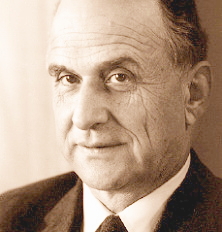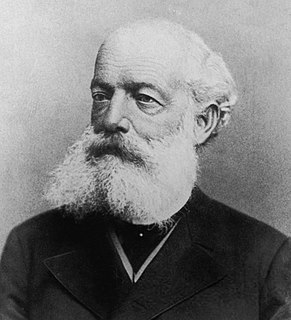A Quote by Iain Banks
Any theory which causes solipsism to seem just as likely an explanation for the phenomena it seeks to describe ought to be held in the utmost suspicion.
Related Quotes
In the first stage of insight-building, all that researchers can do is observe phenomena. Second, they classify the phenomena in a way that helps them simplify the apparent complexities of the world so they can ignore the meaningless differences and draw connections between the things that really seem to matter. Third, based on the classification system, they propose a theory. The theory is a statement of what causes what and why, and under what circumstances.
Our alleged facts might be true in all kinds of ways without contradicting any truth already known. I will dwell now on only one possible line of explanation, - not that I see any way of elucidating all the new phenomena I regard as genuine, but because it seems probable I may shed a light on some of those phenomena. All the phenomena of the universe are presumably in some way continuous; and certain facts, plucked as it were from the very heart of nature, are likely to be of use in our gradual discovery of facts which lie deeper still.
Bacon not only despised the syllogism, but undervalued mathematics, presumably as insufficiently experimental. He was virulently hostile to Aristotle , but he thought very highly of Democritus , Although he did not deny that the course of nature exemplifies a Divine purpose, he objected to any admixture of teleological explanation in the actual investigation of phenomena; everything, he held, should be explained as following necessarily from efficient causes .
For if as scientists we seek simplicity, then obviously we try the simplest surviving theory first, and retreat from it only when it proves false. Not this course, but any other, requires explanation. If you want to go somewhere quickly, and several alternate routes are equally likely to be open, no one asks why you take the shortest. The simplest theory is to be chosen not because it is the most likely to be true but because it is scientifically the most rewarding among equally likely alternatives. We aim at simplicity and hope for truth.
The hypotheses which we accept ought to explain phenomena which we have observed. But they ought to do more than this; our hypotheses ought to foretell phenomena which have not yet been observed; ... because if the rule prevails, it includes all cases; and will determine them all, if we can only calculate its real consequences. Hence it will predict the results of new combinations, as well as explain the appearances which have occurred in old ones. And that it does this with certainty and correctness, is one mode in which the hypothesis is to be verified as right and useful.
The Universe was a silly place at best...but the least likely explanation for it was the no-explanation of random chance, the conceit that abstract somethings 'just happened' to be atoms that 'just happened' to get together in ways which 'just happened' to look like consistent laws and some configurations 'just happened' to possess self-awareness and that two 'just happened' to be the Man from Mars and a bald-headed old coot with Jubal inside.
In the final, the positive, state, the mind has given over the vain search after absolute notions, the origin and destination of the universe, and the causes of phenomena, and applies itself to the study of their laws - that is, their invariable relations of succession and resemblance. Reasoning and observation, duly combined, are the means of this knowledge. What is now understood when we speak of an explanation of facts is simply the establishment of a connection between single phenomena and some general facts.
[Theory is] an explanation that has been confirmed to such a degree, by observation and experiment, that knowledgeable experts accept it as fact. That's what scientists mean when they talk about a theory: not a dreamy and unreliable speculation, but an explanatory statement that fits the evidence. They embrace such an explanation confidently but provisionally - taking it as their best available view of reality, at least unil some severely conflicting data or some better explanation might come along.
We have our little theory on all human and divine things. Poetry, the workings of genius itself, which, in all times, with one or another meaning, has been called Inspiration, and held to be mysterious and inscrutable, is no longer without its scientific exposition. The building of the lofty rhyme is like any other masonry or bricklaying: we have theories of its rise, height, decline and fall -- which latter, it would seem, is now near, among all people.
The question whether atoms exist or not... belongs rather to metaphysics. In chemistry we have only to decide whether the assumption of atoms is an hypothesis adapted to the explanation of chemical phenomena... whether a further development of the atomic hypothesis promises to advance our knowledge of the mechanism of chemical phenomena... I rather expect that we shall some day find, for what we now call atoms, a mathematico-mechanical explanation, which will render an account of atomic weight, of atomicity, and of numerous other properties of the so-called atoms.





































